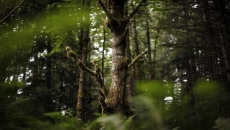Canada's COVID-19 vaccine supply will get a boost this week, with its first shipment of Johnson & Johnson's single-dose jab expected to arrive in the coming days and be dispersed to provinces by early May. But guidance on how jurisdictions could best deploythe vaccine is yet to come.
Dr. Caroline Quach, chair of Canada's National Advisory Committee on Immunization, said in an email to The Canadian Press that guidance "should be available within 7-10 days."
The pause, which ended Friday, was put in place nearly two weeks ago after reports that an exceedingly rare type of blood clot was seen in six recipients — out of 6.8 million doses given. The reviewing bodies found the risk of clotting to be very low and that the vaccine was safe and effective.
The clots appeared similar to the rare events seen in a small minority of recipients of the Oxford-AstraZeneca vaccine, which led NACI to initially recommend limiting that shot to those 55-years-old and up. The agency has since updated its guidance to allow people age30 and olderto get the vaccine.
Health Canada, which said it was also investigating the blood clotreports out of the U.S., approved the Johnson & Johnson vaccinein March and had pre-ordered 10 million doses.
Johnson & Johnson gives Canada four distinct vaccines — along with Pfizer-BioNTech, Moderna and AstraZeneca — and its one-and-done element adds flexibility to the country's rollout.
Here's what we know:
HOW EFFECTIVE IS IT?
Johnson & Johnson announced promising results from its Phase 3 clinical trials at the end of January, suggesting its vaccine reduced severe COVID-19 disease by 85 per cent, and prevented 100 per cent of COVID-related hospitalization or death.
The vaccine had a 72 per cent efficacy in preventing COVID-19 infections after 28 days in the company's U.S. trials. The efficacy dropped to 66 per cent when averaging in results from other global trials, including a South African study that factored in more transmissible variants of the COVID-19 virus.
Pfizer and Moderna showed 95 per cent efficacy in their respective trials, but those were tested against previous dominant strains and didn't account for variants that have popped up since.
Pfizer, Moderna and AstraZeneca also had zero hospitalizations and deaths in their trials.
WHAT ARE THE BENEFITS OF THIS VACCINE?
The ease of distribution offered by a single-dose shot — unlike the two-dose vaccines from Pfizer, Moderna and AstraZeneca — and its ability to be stored in a regular fridge are among Johnson & Johnson's biggest strengths.
Pfizer's vaccine initially required ultra-cold storage temperatures between -60 C and -80 C, though Health Canada said last month it could be stored in a regular freezer for up to 14 days. Moderna's vaccine can also be stored at regular freezer temperatures while AstraZeneca can be stored in a fridge.
Experts have said Johnson & Johnson's product is conducive to large, mobile vaccine clinics that can be set up quickly to target populations in hard-hit communities, especially essential workers.
The FDA approved Johnson & Johnson on Feb. 27, but shipments to the U.S. were also affected by manufacturing problems early on. The bulk of vaccine use in the U.S. has been Pfizer and Moderna.
WHAT KIND OF VACCINE TECHNOLOGY IS USED?
Unlike the mRNA used in Pfizer and Moderna's products, Johnson & Johnson is a non-replicating viral vector vaccine similar to AstraZeneca's.
That means it uses a different harmless virus, which can't copy itself, as a vector to give our cells the instructions they need to make the coronavirus's spike protein.
The immune system recognizes the protein and makes antibodies, which then allow us to fend off attack if exposed in the future.






